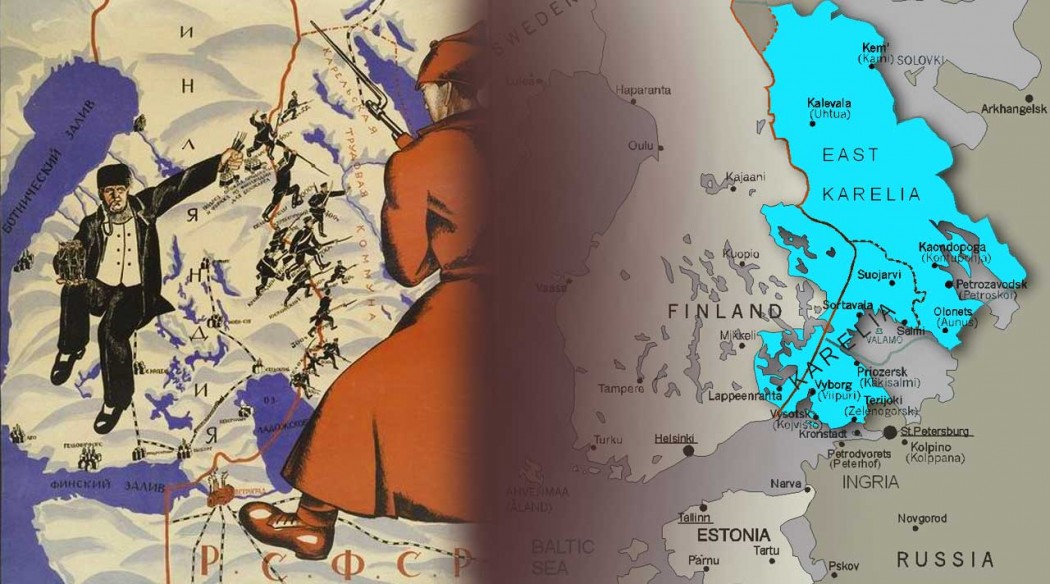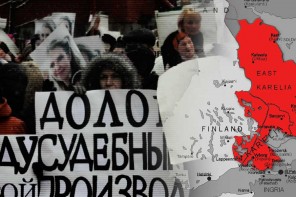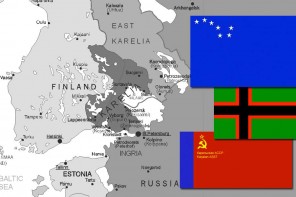Staunton — Karelian nationalists who call for the independence of their republic and raise “unnecessary and harmful questions about additional state languages” there are being “seriously underestimated” as a threat to Petrozavodsk and Moscow, according to Sergey Pirozhnikov, a deputy in the republic legislative assembly.
The reason that this small group is so dangerous, he suggests, is that it is backed by the West. “The enemies of the Motherland today are going for broke,” and they see the Karelians as one of the groups that can that they can use to destabilize the situation inside Russia (stolica.onego.ru/news/249805.html).
Much of the backing for Karelian separatism is coming from Finland, Pirozhnikov says, but they should be focusing on the problems of the Karelians in that country rather than on their co-ethnics in the Russian Federation. There are 15 times more Karels in Finland than there are in Karelia, but Helsinki is far less supportive than is Petrazavodsk (rk.karelia.ru/politics/sergej-pirozhnikov-zachem-nam-navyazyvaetsya-diskussiya-o-gosudarstvennyh-yazykah/).
A week ago, Pirozhkov called for blocking the “Stop the Occupation of Karelia” website (occupacii-karelii.net/) because of its role in promoting Karelian nationalism by talking about “the ‘genocide’ of the Karels by the Russians and the ‘occupation’ of Karelia” (karelnovosti.ru/policy/v-karelskom-parlamente-budut-borotsya-s-karelskimi-separatistami/).
According to the deputy, the website ignores the fact that Russians or their ancestors have been living in Karelia since “at least” the 12th century and blames any misfortune in Karelia – “from the falling of trees to the bankruptcy of private firms” on what it calls “the consequences of the imperialist policy” of Moscow.
Attacking Karelian nationalists seems be a hobby horse for Pirozhkov, but there are indications that separatism is on the rise in that republic neighboring Finland. Last spring, the Stop the Occupation of Karelia called for the restoration of the Ukhta Democratic Republic which existed during the Russian Civil War and posted an appeal for this on the site of the White House in Washington (nazaccent.ru/content/13814-deputat-zaksobraniya-karelii-poprosil-zablokirovat-sajt.html).
And on Monday of this week, Valery Potashov, a Karelian journalist who travels frequently to Scandinavia, suggested that if both the Russian Federation and the European Union weaken, Karelia might have the chance to become part of a new Nordic union combining Sweden, Karelia, Iceland and Denmark into the SKID Republic (inache.net/globo/960).
For the time being, Potashov argued, this is “a utopian” idea, but he argued that “it could arise under definite historical conditions in the North of Europe if there is a weakening of European integration and the disintegration of the Russian Federation,” adding that “in this case, Karelia could become part of a unified Northern Europe.”
On the one hand, there would appear to be little chance for both those conditions to be met. But on the other, the tectonic shifts in the international environment over the last year since the Russian Anschluss of Crimea are prompting ever more people to think about possible futures even if these seem utterly preposterous now.
And such discussions, however fantastic they may appear to many, have consequences, leading some like those in the Stop the Occupation of Karelia movement to work toward these goals and others like Pirozhkin and his allies in the Russian government to work at least as hard against them.
This article was republished by kind permission of the author and can be found here





